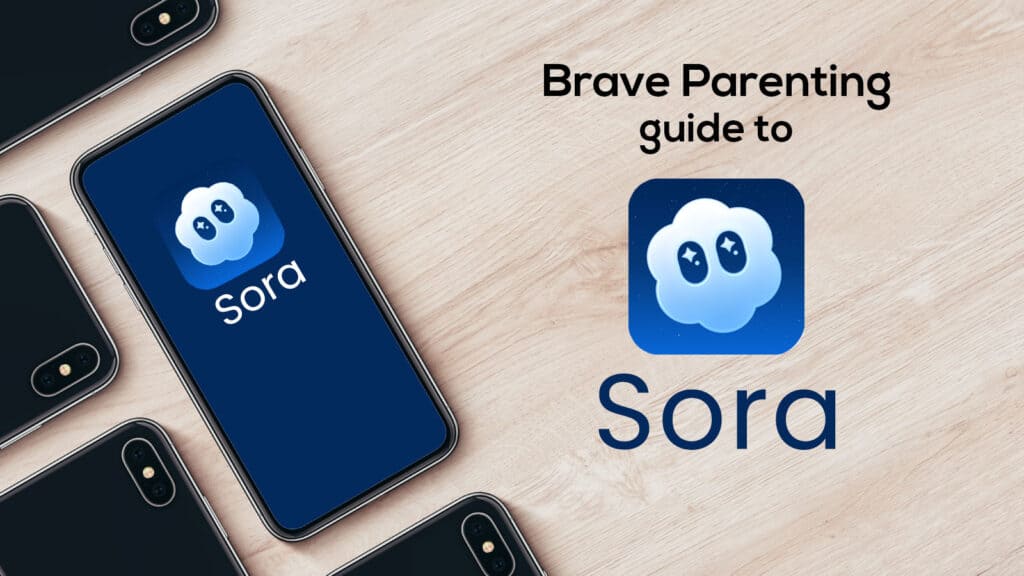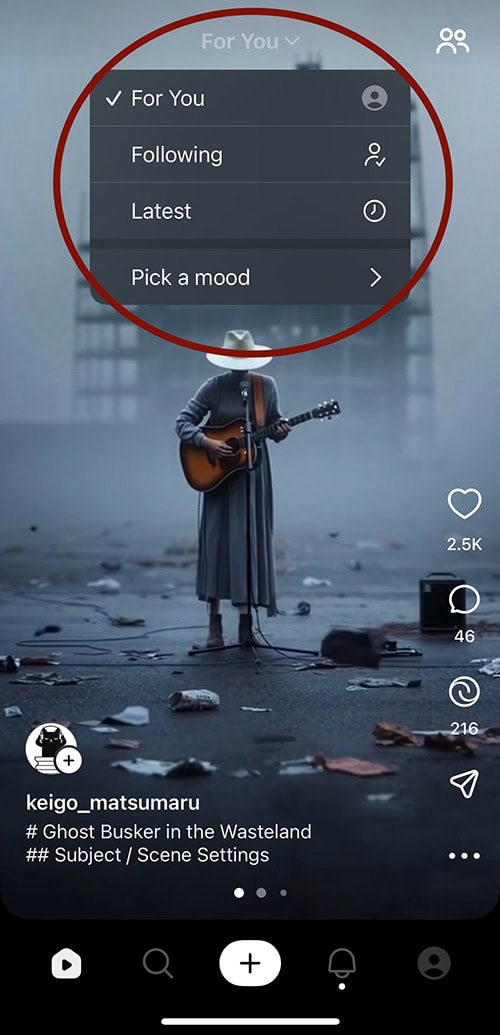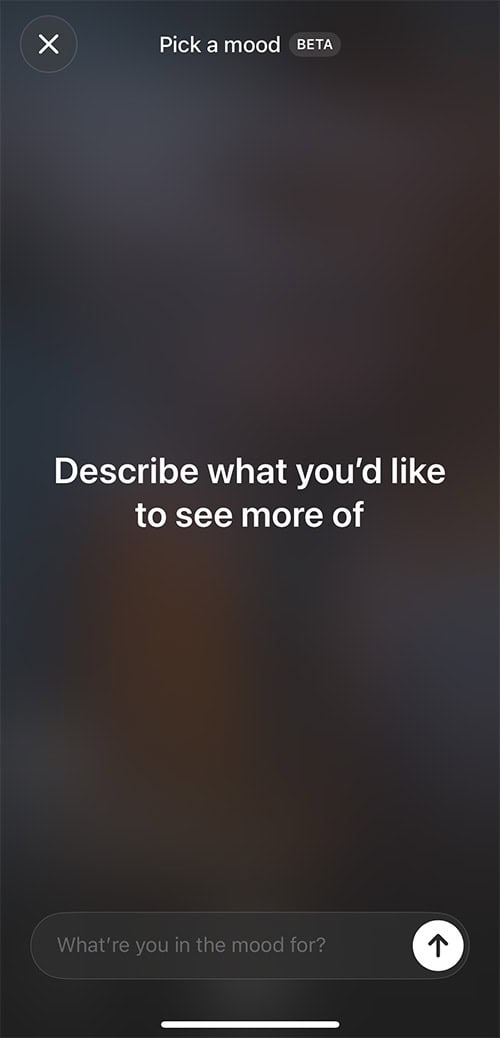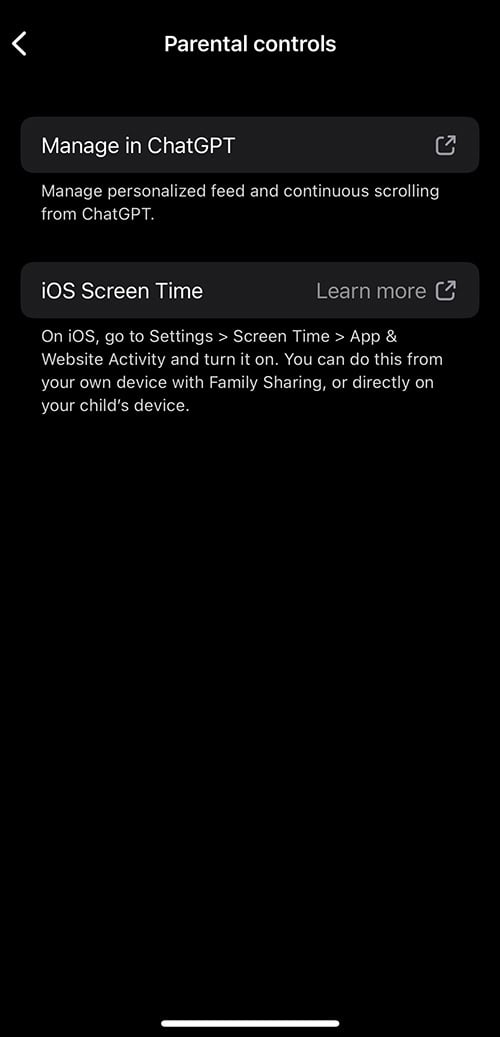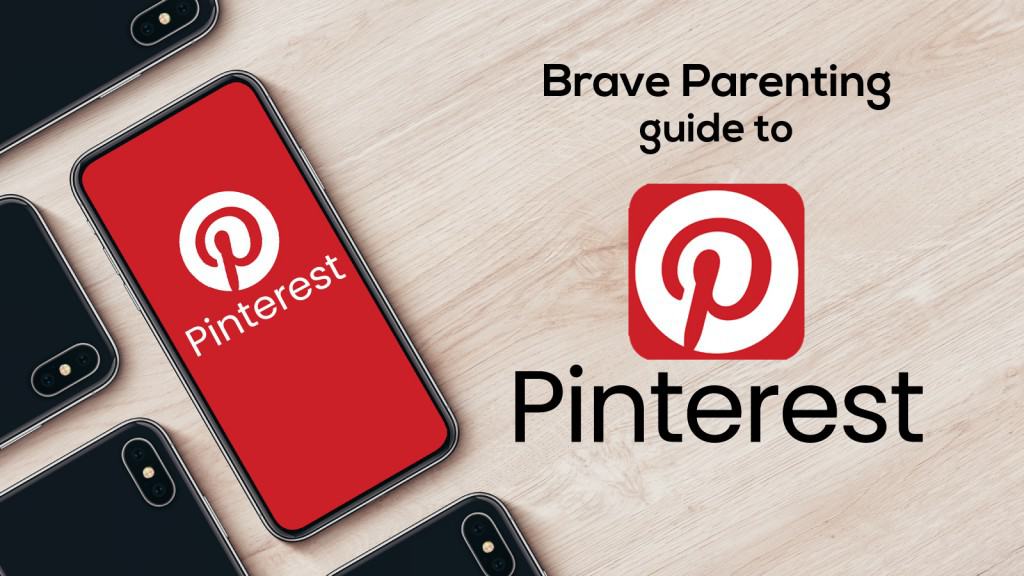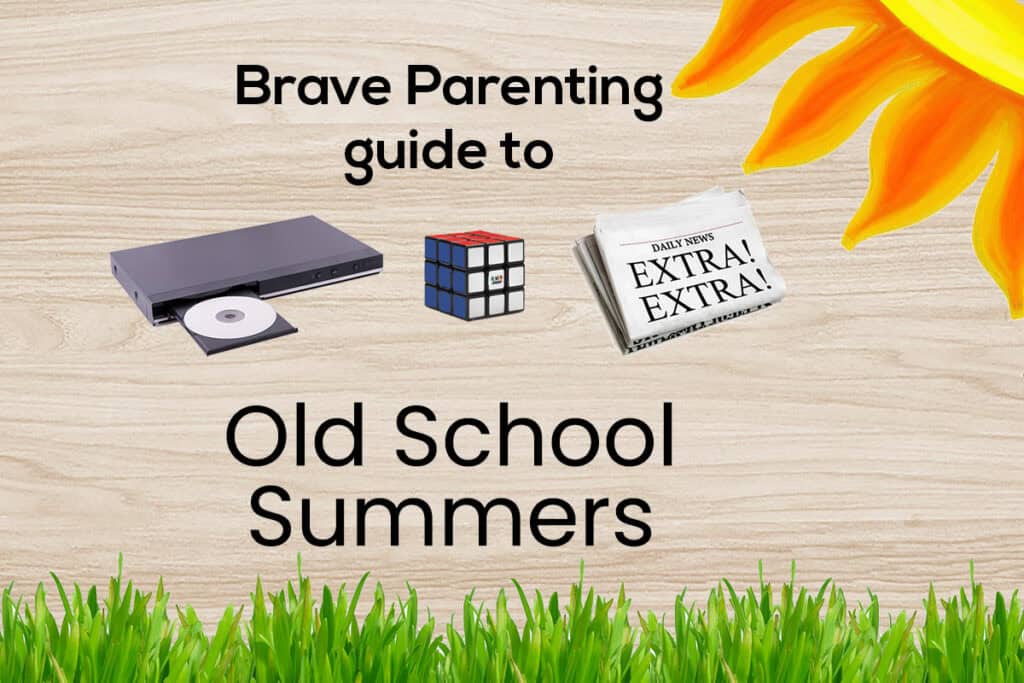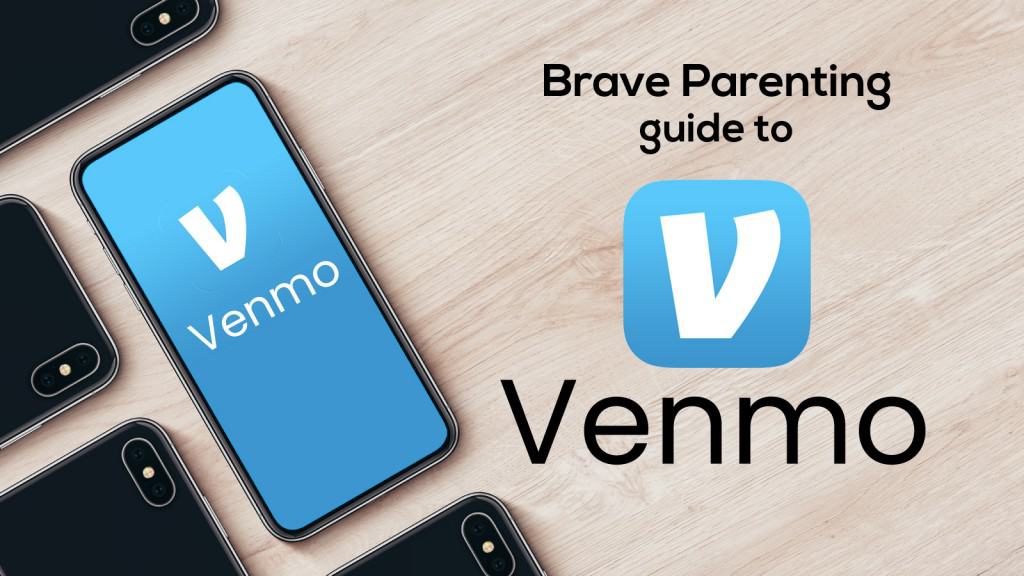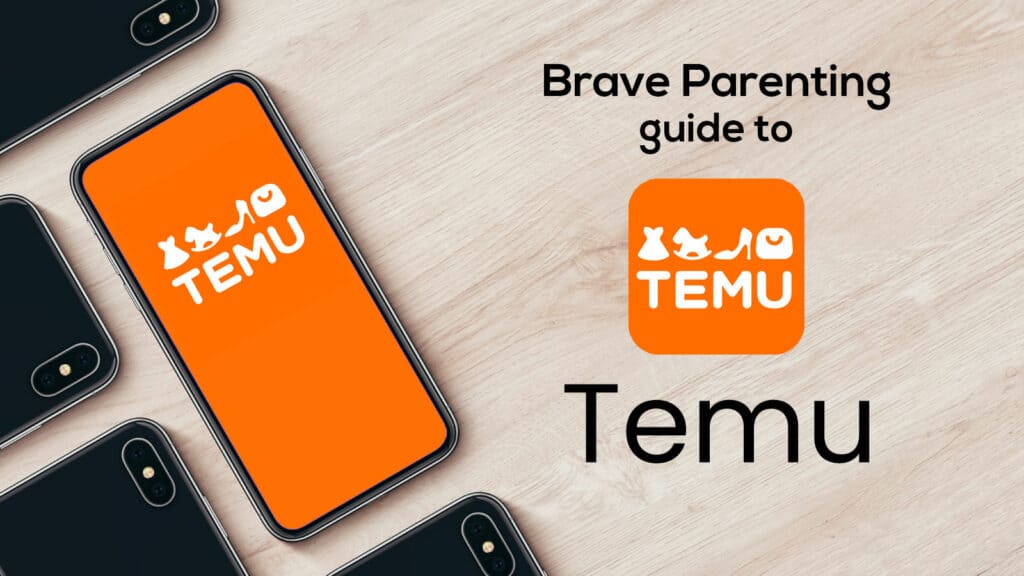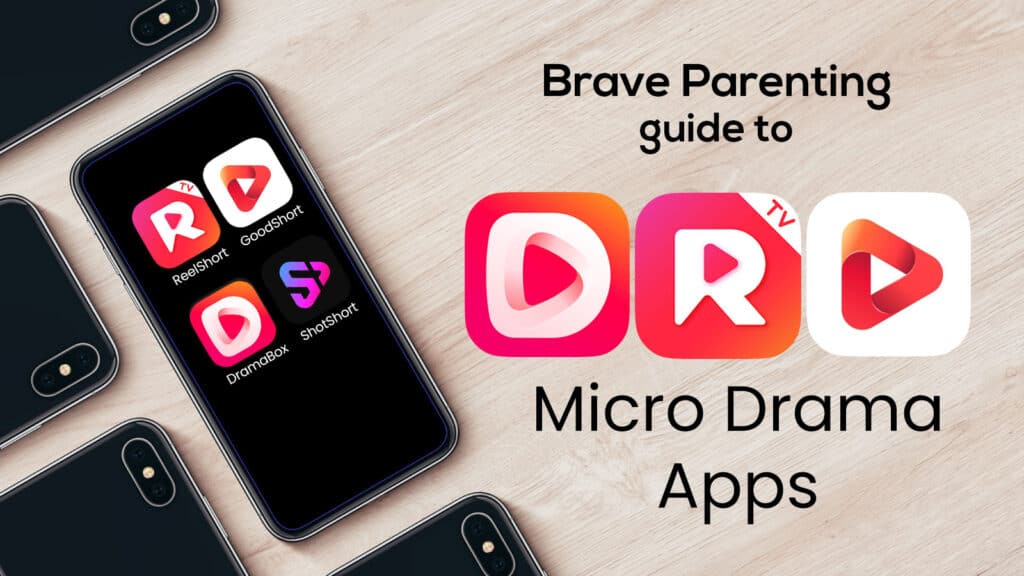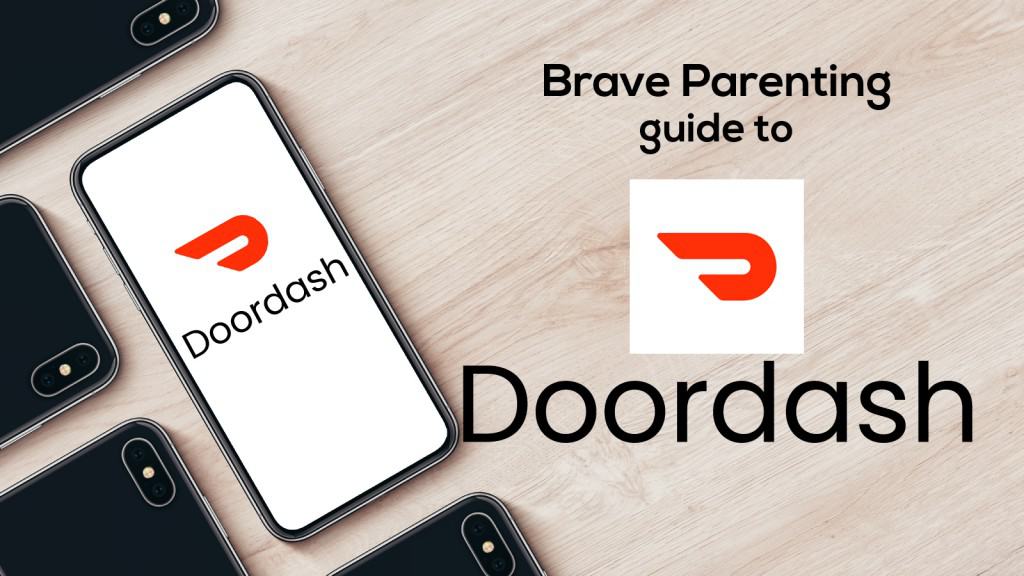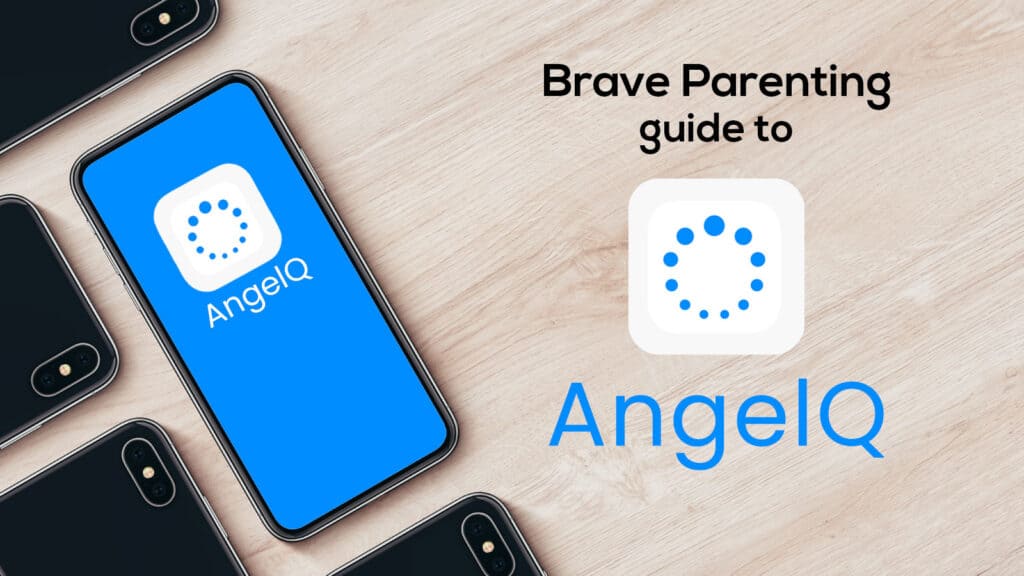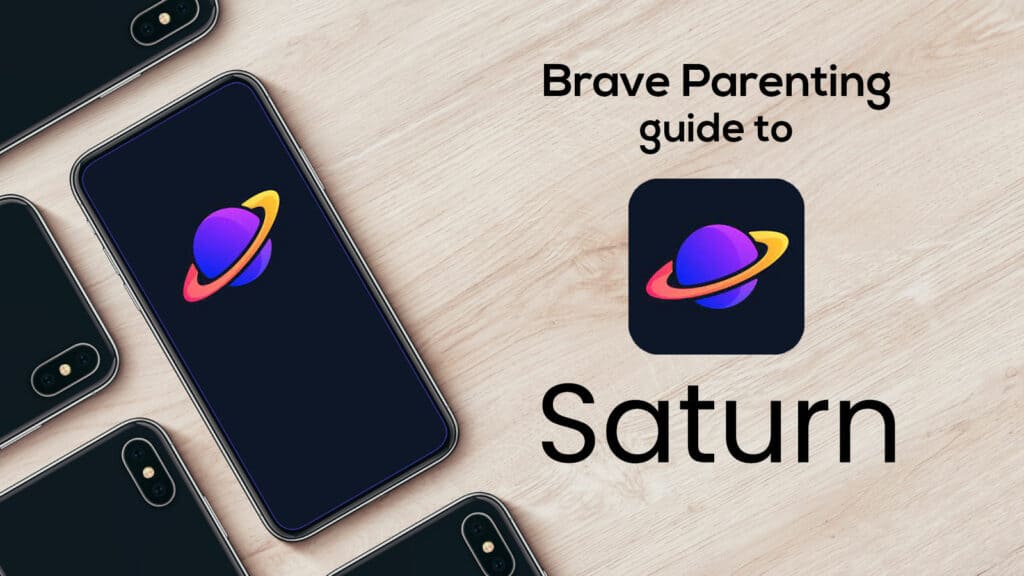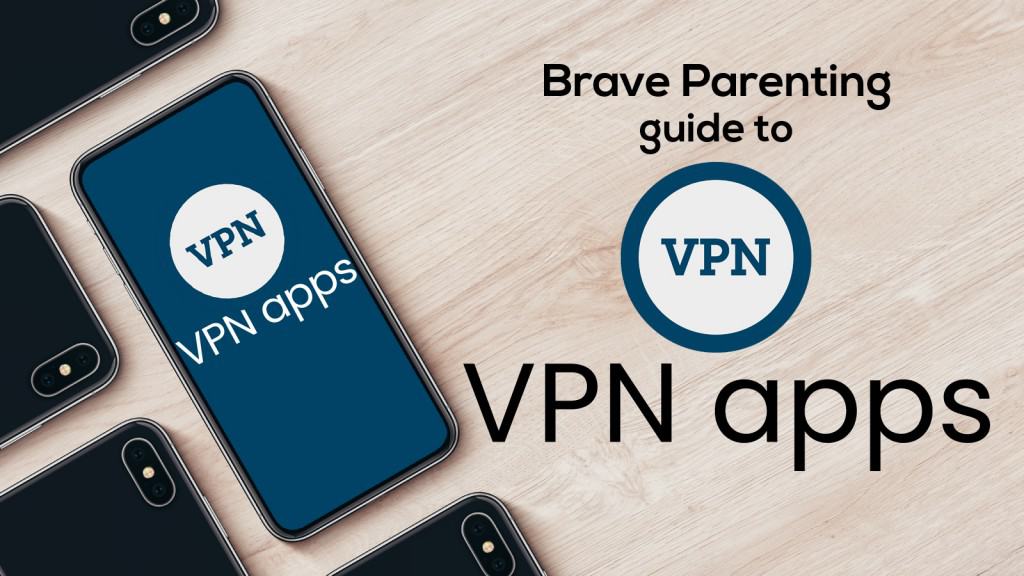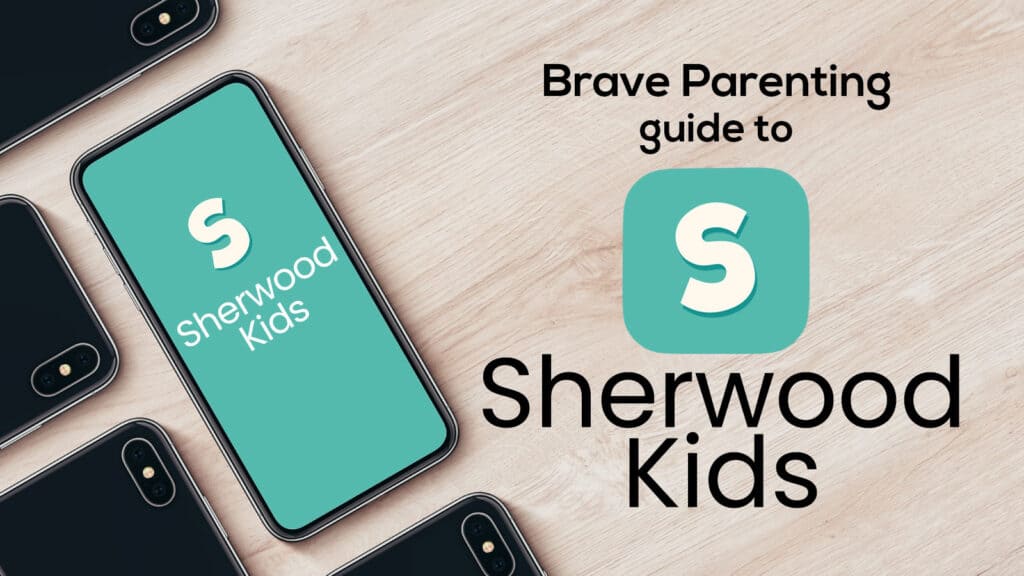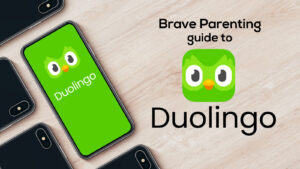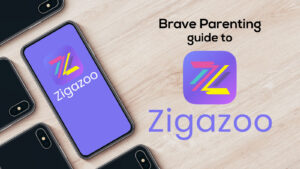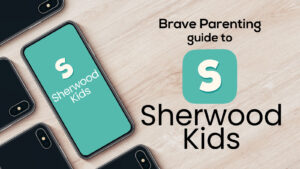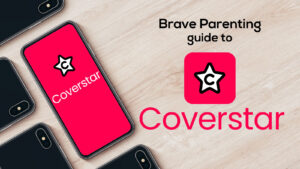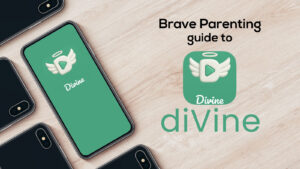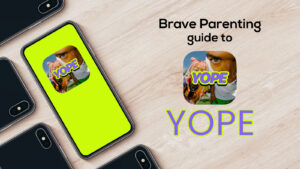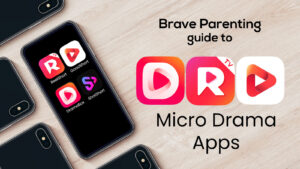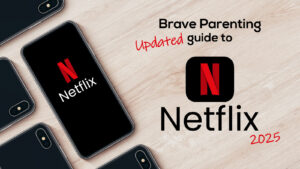OpenAI recently released its text-to-video artificial intelligence tool Sora. It rocketed to the #1 free app in Apple’s App Store, breaking the record by reaching 1 million downloads in 5 days.
It really is a big deal – as big as ChatGPT – not just because it’s incredible technology, but also because it’s riddled with copyright controversy, and AI-generated videos are being used in dangerous social media trends.
Parents must take the time to understand the app before allowing kids to download it.
What is Sora?
Sora is an artificial intelligence tool that generates realistic, high-quality video from a text prompt. The first iteration of Sora was released to the public in December 2024 and was accessible to ChatGPT Plus and Pro subscribers.
Sora 2 was released simultaneously with the new iOS app.
 What is the Sora App?
What is the Sora App?
The Sora app, released September 30, 2025, is a social iOS app powered by Sora 2. It combines video creation capabilities with a social feed. The app has a 12+ rating in the App Store, but according to OpenAI’s Terms, users must be 13 years old, and if under 18, they must have a parent or legal guardian’s permission.
According to OpenAI’s announcement, “Inside the [Sora] app, you can create, remix each other’s generations, discover new videos in a customizable Sora feed, and bring yourself or your friends in via cameos. With cameos, you can drop yourself straight into any Sora scene with remarkable fidelity after a short one-time video-and-audio recording in the app to verify your identity and capture your likeness.” (Emphasis ours)
To be clear, this is a SOCIAL app with friends/followers, Direct Messages, algorithms, and a feed of content. This is not just a tool for video creation.
Why have a Sora feed?
OpenAI justifies its social feed of AI-generated videos with a mission to: “help people learn what’s possible, and inspire them to create.”
Let’s remember that Facebook’s original mission was to connect everyone around the world. That has essentially happened and it isn’t the glamorous benefit to humanity everyone thought it would be. We shouldn’t assume this will have a net benefit to society either.
Their core principles driving this social feed include:
- Optimize for creativity (favor creativity and active participation, not passive scrolling)
- Put users in control (you can tell the algorithm what you’re in the mood for)
- Prioritize connection (this app is made to be used with your friends)
- Balance safety and freedom (robust guardrails prevent unsafe or harmful generations from the start)
Sora’s social feed (which looks/feels just like TikTok) is generated based on:
- your activity on Sora
- your ChatGPT data
- content engagement signals (how long you linger or many times you rewatch a video)
- author signals (follower count, other posts, past post engagement, etc.)
Because this is a different type of “feed”, curiosity alone may lure people into scrolling “participation”.
We cannot forget what we’ve already learned about social media feeds over the last 20 years: you are the product being sold.
OpenAI can boast wholesome intentions about “helping people learn what is possible,” but the primary reason for creating a feed for people to post and engage is to collect data.
It was recently highlighted that AI systems have “run out of data to train on,” and new ways of collecting data are being explored. We’d be fools to think OpenAI isn’t using this feed to collect specific data from its users.
Why No One (especially teens) Needs a Sora feed
Aside from the concerns stated above, there are some fundamental and formative reasons why families should steer clear of the Sora feed.
- Connections are not real relationships
Human relationships are embodied. They require more than a tap on ADD FRIEND or an occasional LIKE. They require face-to-face life-on-life time together in reality. - Algorithms are the enemy.
In an epidemic of isolation and loneliness, the last thing anyone needs is another short-form video feed that sucks you in with its mind-bending capabilities.
- Diminishes true creativity
The point of creativity isn’t speed or breaking reality; it is a reflection of God’s divine attribute and an invitation to participate in God’s creative nature. - Competition and comparison
AI can generate “perfect” worlds, relationships, or versions of oneself. Even if you tell yourself it’s a curated highlight reel or an AI-generated video, it can still breed comparison and insecurity. - Artificial expression
AI-generated videos are bound to become the next iteration of memes used to express ideas or emotions. Authentic, life-giving communication is further degraded as the ability to process and articulate oneself is outsourced to AI.
OpenAI did end up releasing parental controls just before launching the iOS Sora app. These can be of some benefit, but ultimately, no one under 18 needs this app.
“Parents can adjust Sora settings for connected teen accounts in ChatGPT, including opting into a non-personalized feed, choosing whether their teen can send and receive direct messages, and the ability to control whether there is an uninterrupted feed of content while scrolling.” Unfortunately, opting out of the feed entirely is not an option.
What are “Cameos”?
Ope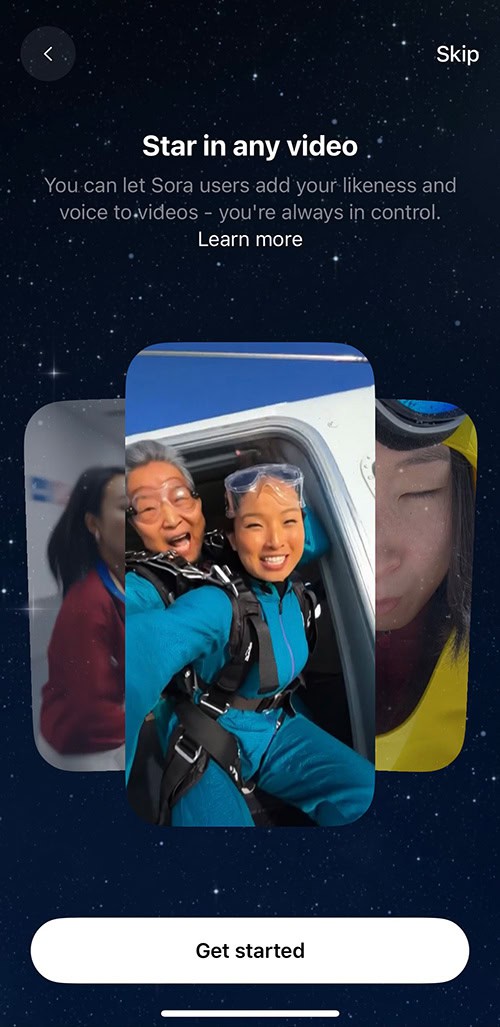 nAI states, “We think a social app built around this “cameos” feature is the best way to experience the magic of Sora 2.”
nAI states, “We think a social app built around this “cameos” feature is the best way to experience the magic of Sora 2.”
Cameos are one of the most popular features emerging with Sora and other AI video tools. Cameos let you cast yourself (or approved friends) as a character in videos. OpenAI states that setting up a cameo is opt-in and includes a quick video-and-audio verification so Sora can represent you accurately and prevent misuse.
These are nothing more than deepfakes glamourized for entertainment.
Naturally, there are red flags when it comes to using someone else’s likeness or voice to create artificial videos. But it appears that in order for a person’s likeness to be used, they must have created a “cameo” (video-audio verification) of themselves and granted permission for others to use it.
OpenAI insists that “videos that include your cameo—including drafts created by other users—are always visible to you. This lets you easily review and delete (and, if needed, report) any videos featuring your cameo.”
Depending on how many people you enable to use your “likeness,” monitoring all the videos of yourself could be a full-time job.
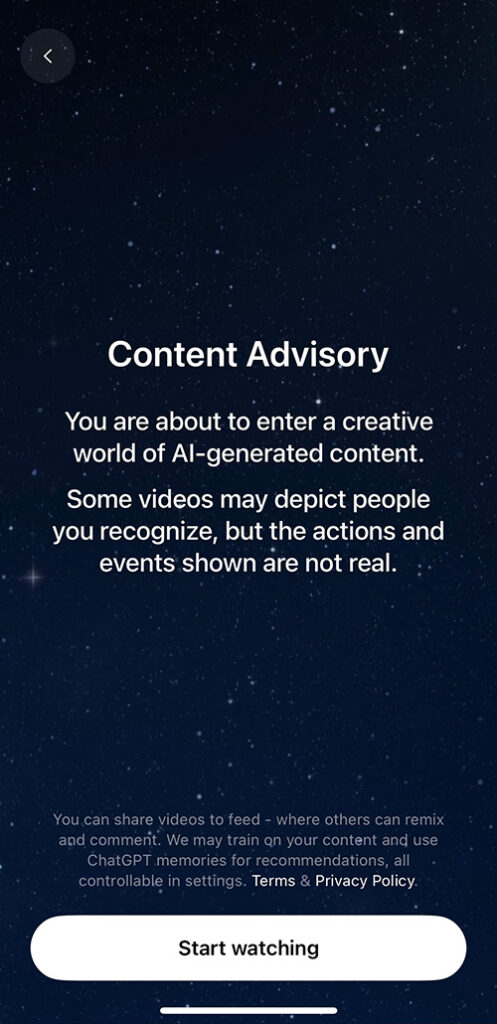 Are “Cameos” a good idea for teens?
Are “Cameos” a good idea for teens?
For almost every teen, it’s a bad idea. Here are a few reasons:
- Cameos aren’t about editing or filtering, but full-on digital impersonation.
- Cameos blur the lines of reality. To be human is to be bound by time and space. Cameos allow for realistic imagery of what will never be.
- Cameos normalize deception, fantasy, and exploitation as a form of entertainment.
- Allowing a data-collecting giant access to your biometric data for entertainment isn’t necessary or wise.
- OpenAI’s guardrails are only as good as their enforcement. TechCrunch already reported that users are navigating around the guardrails.
*Listen to our podcast Keep Your Kids Off Sora for more in-depth analysis of the potential disaster that awaits teens + cameos.
Biblically Considering “Creating” and “Image-Bearing”
In the first verse of the first book of the Bible, we read that God is the creator of the heavens and the earth (Gen. 1:1). God spoke all of creation into being.
While all of creation reveals God’s glory, only one part of creation was deemed worthy of God’s image. “So God created mankind in His own image, in the image of God he created them; male and female he created them” (Gen 1:27).
God invited the man and woman to share in His divine attributes as creator and ruler. “God blessed them and said to them, ‘Be fruitful and increase in number; fill the earth and subdue it. Rule over the fish in the sea and the birds in the sky and over every living creature that moves on the ground” (Gen 1:28).
However much Sora seems to mimic the divine role of creator, AI cannot create life or truth.
Without a Christian worldview and biblical understanding of creation, life and truth become subjective realities. Confusion and despair are the natural consequences of living in a world without objective truth.
After man’s fall into sin, the people on earth exerted their God-given attribute to be creators and innovators and started to build a tower. “They said to each other, ‘Come, let’s make bricks and bake them thoroughly.” They used brick instead of stone, and tar for mortar. Then they said, “Come, let us build ourselves a city, with a tower that reaches to the heavens, so that we may make a name for ourselves; otherwise we will be scattered over the face of the whole earth” (Genesis 11:3-4).
This is one of humanity’s classic attempts to use technology and ingenuity for selfish gain. AI offers a similar, but perhaps greater temptation to all mankind. With AI, man can use words to speak something into creation with no physical work required. They can create, innovate, and exert control over creation for their own benefit.
When humans lose sight of the Creator, they also lose sight of their created purpose and the image-bearers living embodied lives around them.
Artificially intelligent innovations like Sora can easily tempt us to forget our Creator and the world He created for an appealing but fabricated imitation. When we reduce people to their “digital likeness” and define their dignity with a text prompt, we diminish the reverence to the One whose image we bear. (See Romans 1:18-32.)
Life and truth are inseparable and only found in Jesus Christ. “I am the way, the truth, and the life” (John 14:6). Our purpose as image bearers of God is to reflect the glory and nature of our Creator. It is not to create new life and truth or “to explore what is possible”.
This is why AI tools like Sora must be used with great caution. Sora’s video creations mirror life and truth, but are void of both. These technologies aren’t inherently evil, but they purport to grant us our deepest desire for control, self-exaltation, and joy. Creating and image-bearing, life and truth are readily distorted and lost in Satan’s snare of comfort and convenience.
Brave Parenting Recommendation
Sora is an app for adults, not for children, teens, or even some young adults. As it stands, many adults will likely lose touch with reality due to this app.
Children must be taught a biblical understanding of AI technologies such as ChatGPT and Sora. Although we’ve reached a point where AI is nearly unavoidable (“Googling” something is now engaging with AI), young children should be shielded from AI-generated content as much as possible.
Life and truth are hard enough to grasp during childhood, and considering mature adults are “falling in love” with their AI chatbots, we can recognize the slippery slope on which we stand. This is not a tool to build tech-savviness or tech-wisdom.
In the same vein, teenagers must be taught a biblical understanding of what it means to be human in terms of truth, relationships, stewardship of time, and work. AI will distort each of these without the teen realizing it. Logic and reasoning are skewed, relationships suddenly seem unbearable, time is wasted (rather than saved as promised), and work becomes “content creation.”
The apostle Paul wrote, “Everything is permissible, but not everything is beneficial” (1 Corinthians 10:23).
The Sora app embodies this admonishment. For almost all teenagers, Sora will not be beneficial. Perhaps it may be neutral, but like the generative AI and social apps that have gone before us, we surmise it will cause a net harm. Families should avoid this app altogether.

